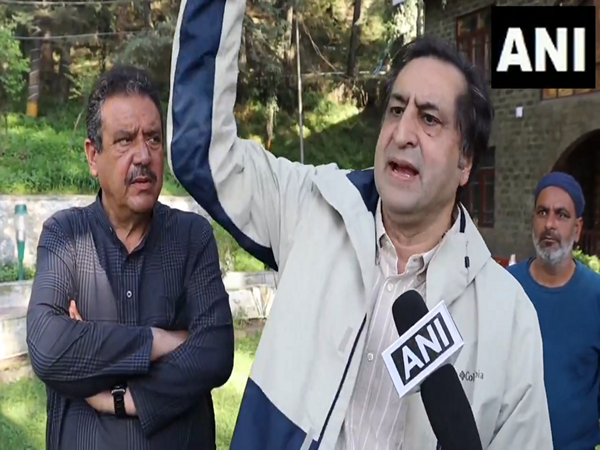Look forward to more Indian students coming to Australia next year: Envoy Philip Green
Apr 23, 2024

By Ayushi Agarwal
New Delhi [India], April 23 : The Australian High Commissioner to India, Philip Green on Tuesday said that he is looking forward to having more Indian students coming to Australia next year for their education.
The High Commissioner said that it is wrong to say that there's been a surge in visa rejections of Indian students by Australian universities as reported by some media recently, and that they are giving a rethink to their higher education plans.
He stressed the fact that the statistics have been seen by himself, and underlined that 'they are very similar this year to what they were last year' and that 'there hasn't been a surge in rejection of students.'
'There has not been a surge in rejection of students. I have looked at these statistics myself and they are very similar to this year to what they were last year. Unlike some other countries, Australia has not put a cap on the number of foreign students coming to our country. Yes, we want to make sure that students coming forward from reputable institutions will have a good experience in Australia,' said Envoy Green during an interview with ANI.
'We make apologies for the fact that we want good students and we want to make sure that they are paired with the right courses. This is utterly wrong to say that there has been a surge in rejections; we look forward to as many or perhaps even more Indian students coming to Australia in the next year,' he added.
Lauding the cooperation between India and Australia in the field of Education and skill development, the High Commissioner hailed the Australian university's foreign branch opening in India which marked the first time a foreign university opened its campus in India.
The country's Deakin University earlier inaugurated its branch campus in GIFT City, Gujarat.
'A large number of Indians choose to come to Australia as part of their education, and we normally work on that, and there will be more of it. But frankly, this country if it's to fulfill its development possibilities, we'll need more skills. And that's why we together with the Indian Government are saying that this shouldn't be a one-way street,' envoy Green said.
'Australian education should be available more here in India so that Indians can fulfill their possibilities. That's why I'm delighted that the first two foreign branch campuses in the world that have come to India have come from universities in Australia, and they won't be the last,' he added.
This move was poised to strengthen educational ties between the two nations and provide Indian students with access to world-class Australian education. Through the new education policy brought in in 2020, India has opened floodgates for foreign educational institutes to set up brick-and-mortar infrastructure.
Notably, in January this year, Vice Chancellor of Australia's Deakin University Iain Martin met Prime Minister Narendra Modi in Gandhinagar, where they had a productive discussion on enhancing collaboration between government and academic institutions about cybersecurity. In a post on X, the Prime Minister welcomed Deakin University to collaborate with Indian universities to promote research and innovation.
Last year in November, Union Minister for Education and Skill Development, Dharmendra Pradhan held a bilateral meeting with his Australian counterpart, Jason Clare, MP, Education Minister.
Both the Ministers then comprehensively reviewed the bilateral cooperation in education and skilling and agreed to further strengthen knowledge and skilling partnerships for greater mobility, employability, and prosperity of people in both our countries.
During the meeting, Pradhan highlighted 2023 as a landmark year for Australia and India, particularly for cooperation in the areas of education and skill development.
He then said that education and skills as a primary and priority area of our bilateral engagements reflect PM Narendra Modi's and Australian PM, Anthony Albanese's commitment to strengthening knowledge bridges.
Meanwhile, Jason Clare, MP in his address mentioned how the future of the countries will be shaped with the help of meaningful partnerships in the areas of education and skilling.
He mentioned the 450 existing research partnerships between the two countries. He also commented that collaboration at the governmental, institutional, and industry levels will further strengthen the tie-up and benefit both countries.



















